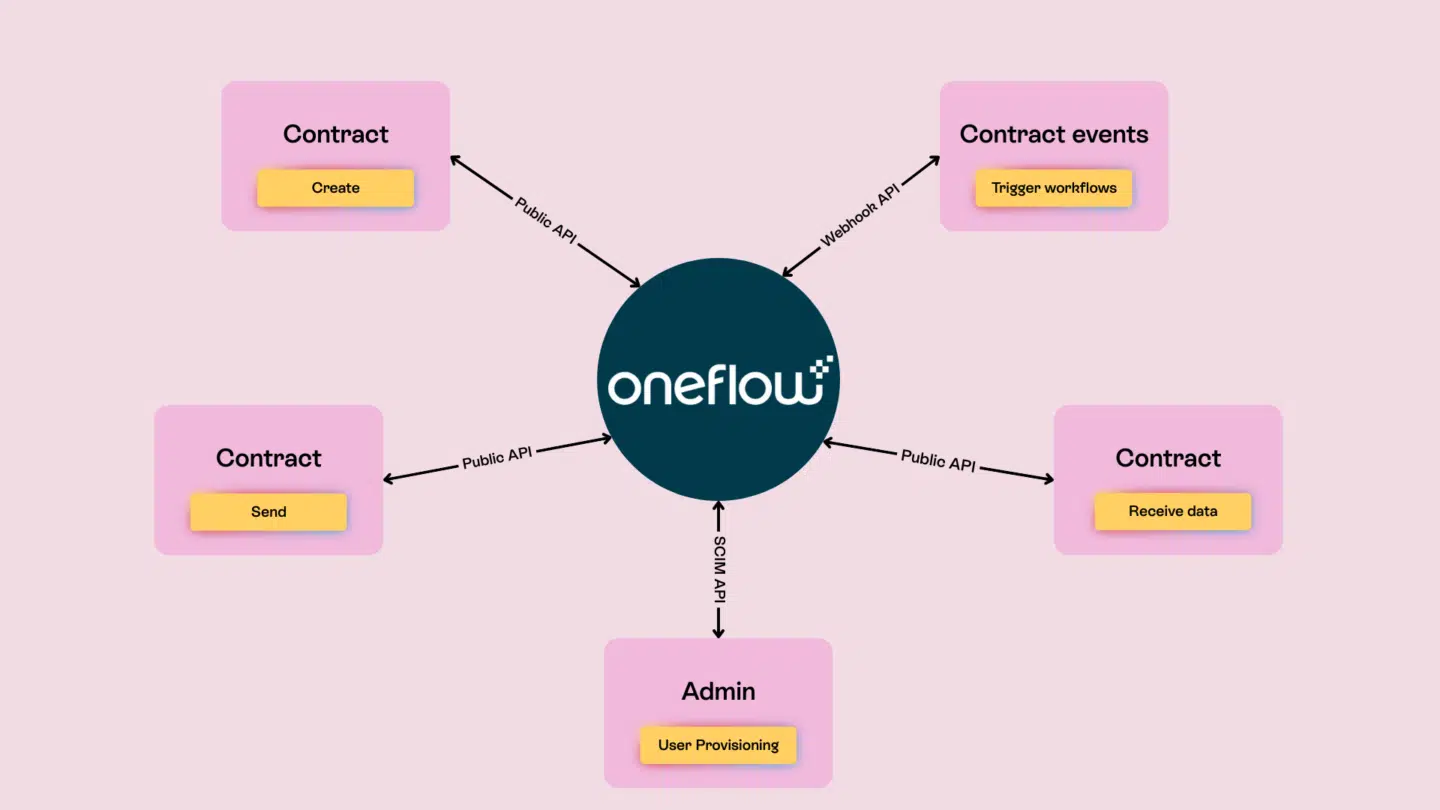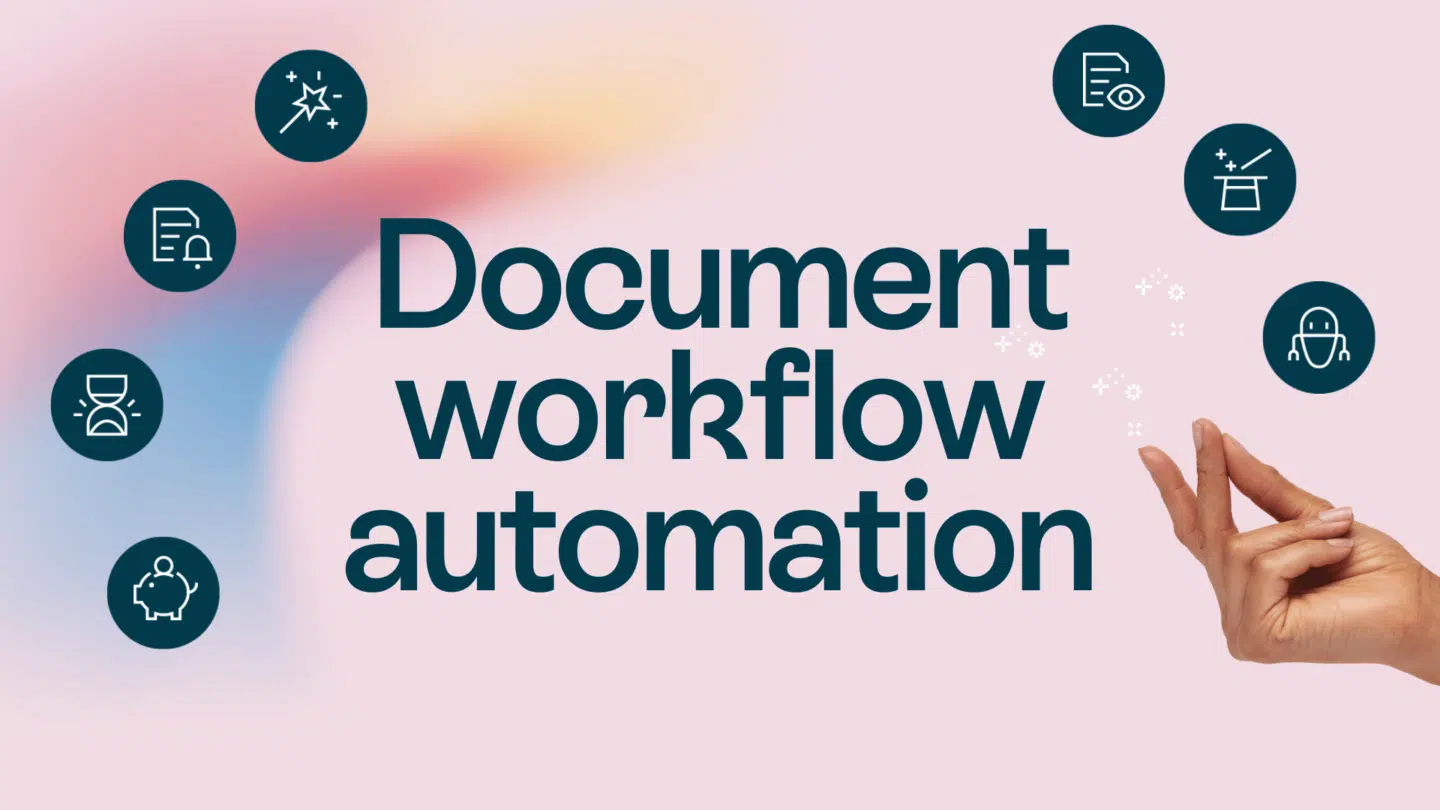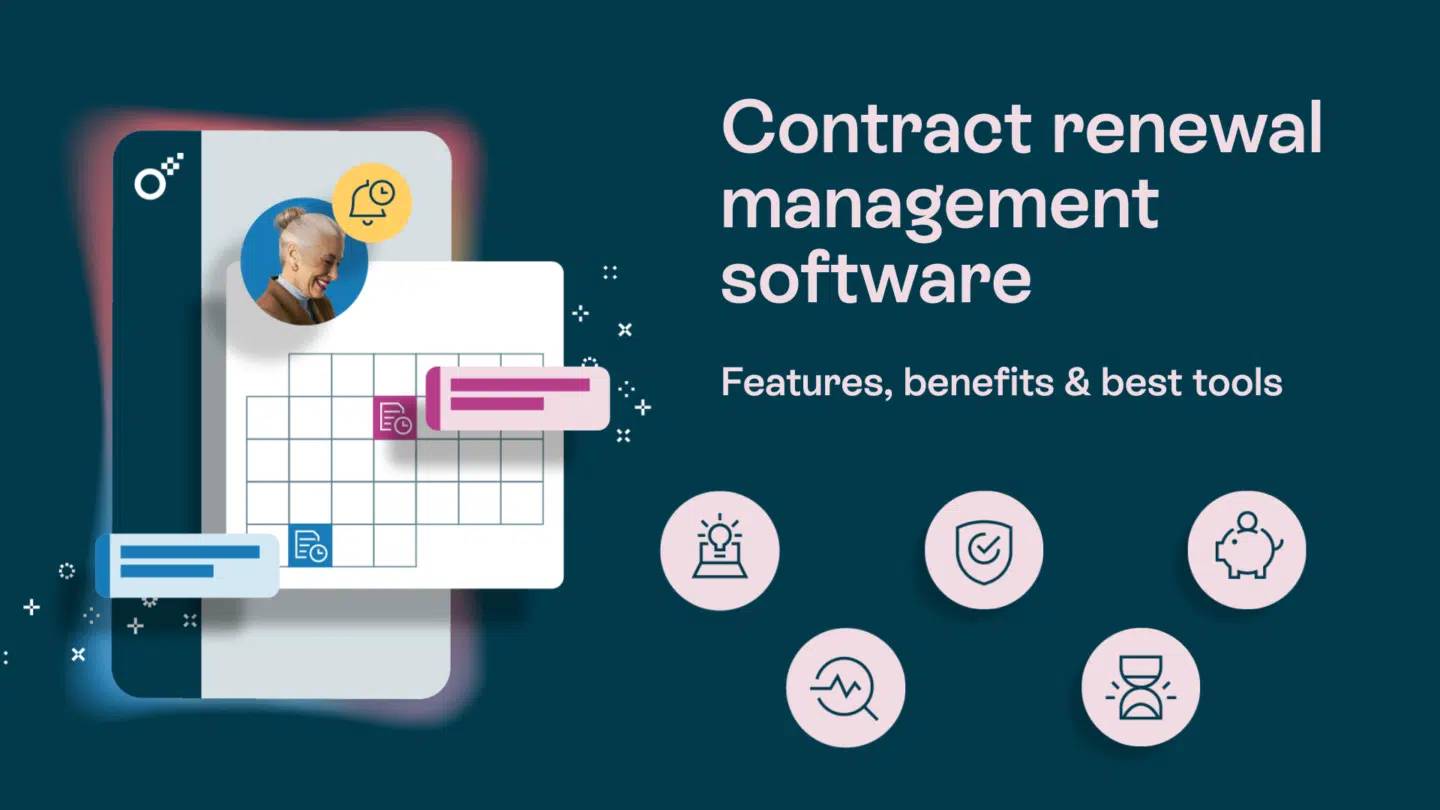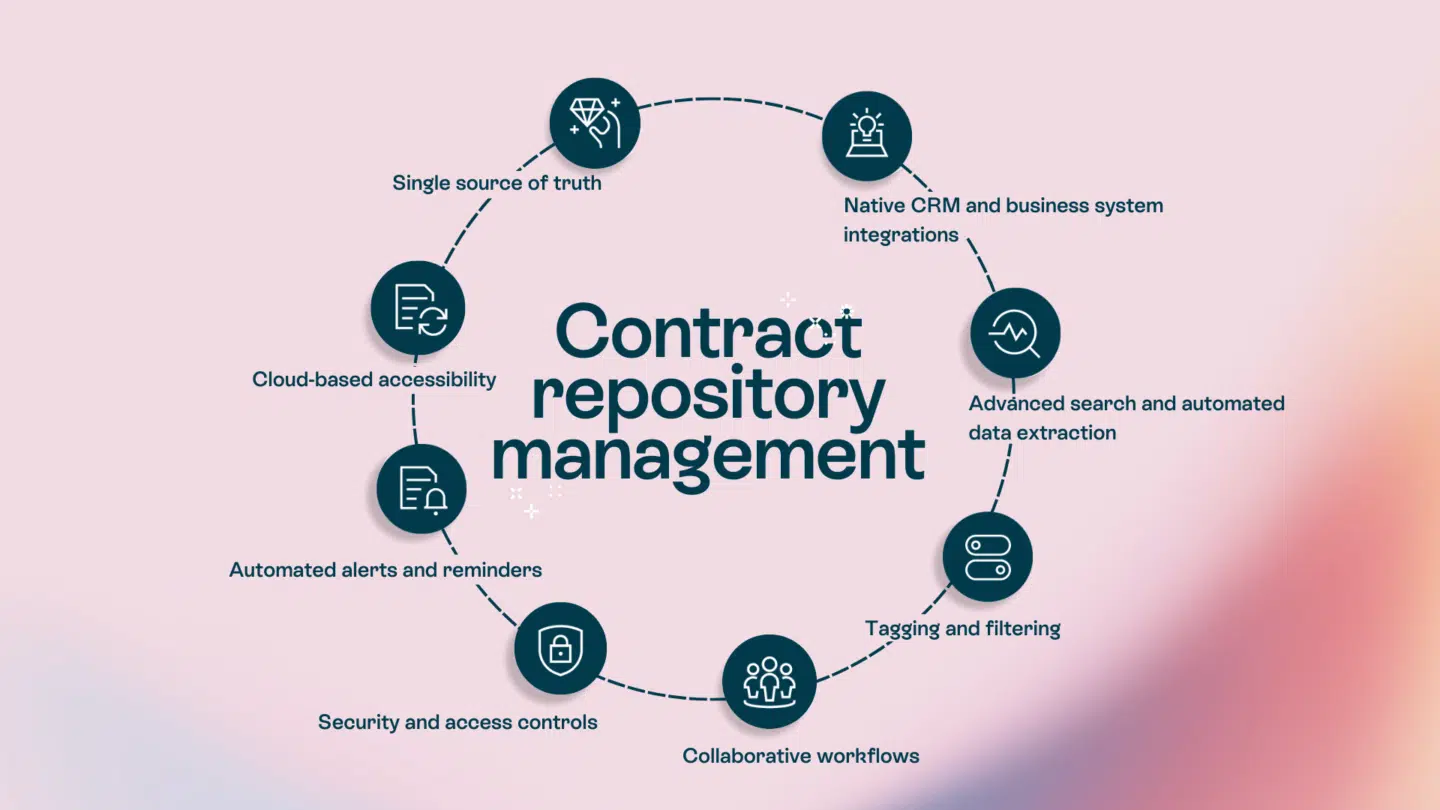Oneflow is more than just a contract management tool—it’s a versatile solution that can be adapted to fit the unique needs of different departments within a business. Whether it’s sales, legal, HR, or any other team, document handling is simplified, and workflows are streamlined across the board.
For sales teams, quick and easy proposal generation and approval tracking are enabled. For HR, offer letters and employment contracts are automated, saving hours of administrative work. Legal teams benefit from the easy management of contracts, renewals, and compliance, all supported by real-time tracking.
Here’s how users from various departments and industries have used Oneflow to make contract management processes more efficient and organized, reducing errors and saving valuable time.

Flexibility is a must in contract management
Managing contracts manually or across multiple tools is a challenge for many companies—each department has to adapt to processes that aren’t tailored to their unique needs. Sales teams may rely on one tool, HR teams on another, and legal teams on yet another. This fragmented approach often leads to wasted time, miscommunication, and slow approval processes.
The lack of flexibility makes it hard to adjust templates, workflows, and processes to fit each department’s needs. What works for one team doesn’t necessarily work for another, creating bottlenecks and frustration throughout the organization.
It’s clear: companies need more flexibility in their contract management.
A tool that works across departments and use cases
Oneflow has been designed with flexibility in mind. From custom templates to easily adaptable workflows, the platform can be modified to fit the exact needs of any department, whether it’s sales, HR, legal, or beyond.
One of the features users appreciate is how easy it is to adapt Oneflow for varying agreement types. “The ability to modify templates makes it flexible for various document types,” shared another user. Whether it’s standard contracts, service agreements, or more complex documents, Oneflow makes sure that teams can tailor their workflows accordingly.
Teams in departments like HR, legal, and sales have found particular value in the platform’s adaptability. “Adapts seamlessly to meet the needs of legal, HR, and sales departments,” said another user.
“Integrating into various workflows, from sales to HR, was simple and effective,” a user shared, demonstrating the ease of using Oneflow across multiple teams. “Oneflow works flawlessly across our teams, saving time and boosting efficiency,” shared another customer.
Adaptable contracts for complex needs and workflows
Oneflow’s flexibility shines, especially when it comes to handling complex or multi-stage agreements, which often require multiple parties or detailed negotiations. “Flexibility in handling complex multi-stage agreements is a standout feature,” said one customer.
In industries with unique document processing needs, the system’s adaptability means no scenario is too complicated. “The system adapts perfectly to the variety of documents we process daily,” a user explained. Another user agreed, saying, “It’s flexible enough to adapt to different departments and their needs.”
For businesses that are looking for a solution that works the way they do, Oneflow offers a balance of customization and efficiency. “The best thing is how customizable and adaptable it is to our processes,” said one user.
Key takeaway: No matter the department or contract type, Oneflow’s adaptability makes it a reliable choice for companies across all industries.
Learn more about how Oneflow can be adapted to your different contract workflows here.






